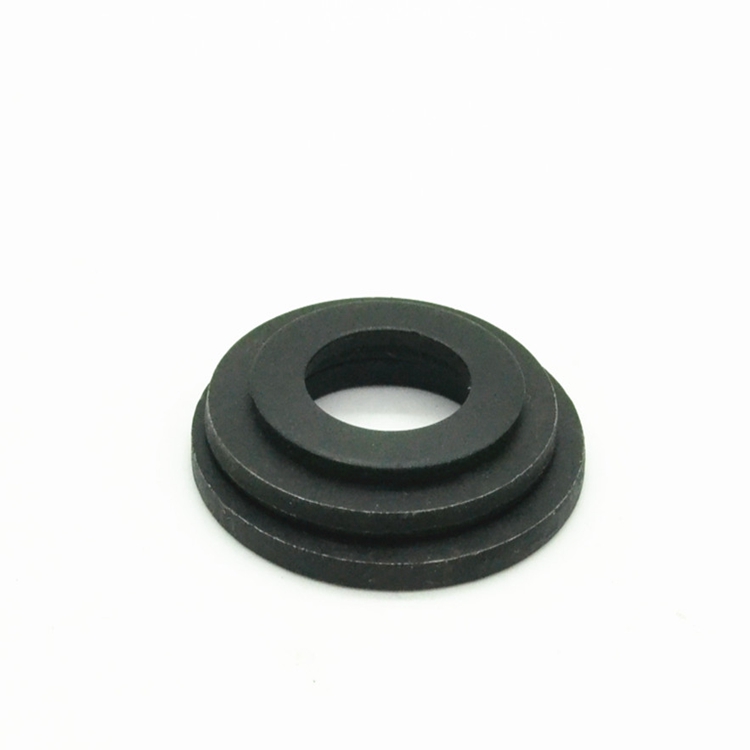stud bolt mfg co companies
Oct . 31, 2024 10:57 Back to list
stud bolt mfg co companies
The Evolution and Impact of Stud Bolt Manufacturing Companies
Stud bolt manufacturing companies play a crucial role in various industries, providing essential fasteners that ensure the stability and integrity of numerous structures and machinery. A stud bolt, essentially a threaded rod with two different threads on either end, has become a cornerstone in the construction, automotive, and aerospace sectors. This article explores the evolution, significance, and future prospects of stud bolt manufacturing companies.
Historically, the need for robust fastening solutions has been evident, dating back to ancient civilizations where rudimentary forms of bolts were used in buildings and machinery. As technology advanced, so too did the need for more sophisticated fastening systems. By the mid-20th century, stud bolts gained prominence in industrial applications, particularly with the rise of heavy machinery and construction projects. The demand for reliable components that could withstand significant stress and pressure propelled the growth of stud bolt manufacturing companies.
The Evolution and Impact of Stud Bolt Manufacturing Companies
Quality control is a cornerstone of stud bolt manufacturing. Companies employ strict protocols to ensure that their products meet industry standards and regulatory requirements. Advanced manufacturing processes, including CNC machining and precision forging, are commonly used to enhance the durability and performance of stud bolts. As industries evolve, so too do the techniques employed by manufacturers. The integration of automated processes and robotics has significantly increased efficiency and reduced production times, enabling companies to meet the rising demands of the market.
stud bolt mfg co companies

Environmental sustainability is becoming an increasingly important aspect of manufacturing, and stud bolt manufacturing companies are no exception. Many firms are adopting eco-friendly practices, such as recycling materials and reducing waste during production. This shift not only aids in conserving resources but also aligns with the growing consumer demand for sustainable products. As global industries move towards greener solutions, manufacturers that prioritize sustainability will likely gain a competitive edge.
The future of stud bolt manufacturing companies appears promising, particularly with the continuous advancements in technology. The rise of smart manufacturing, including the Internet of Things (IoT), could revolutionize the way stud bolts are designed, produced, and distributed. Companies are already exploring the potential of 3D printing and additive manufacturing techniques, which could allow for more complex designs and reduced material waste.
Moreover, as emerging markets grow and infrastructure projects expand worldwide, the demand for quality fasteners like stud bolts will remain strong. Increased collaboration and partnerships within the industry will likely lead to innovation and improved product offerings. Education and training remain vital for the next generation of engineers and manufacturers, ensuring that the industry continues to evolve and adapt to new challenges.
In conclusion, stud bolt manufacturing companies are integral to the backbone of many industries. Their ability to innovate, adapt, and embrace sustainability will determine their success in an increasingly competitive market. As technology advances and global demand for reliable fastening solutions grows, these manufacturers will continue to play a pivotal role in shaping the future of engineering and construction.
Latest news
-
High-Quality Panel Stud Bolt Reliable Panel Stud Bolt Factory & Suppliers
NewsJul.08,2025
-
High-Precision Fine Thread Locknuts Manufacturer & Supplier Custom Solutions
NewsJul.08,2025
-
PH Imperial Stud Bolt – High Strength Fasteners from Leading Supplier & Factory
NewsJul.07,2025
-
High-Quality Allen Wrench Bolts Leading Factory, Company & Suppliers
NewsJul.07,2025
-
Wholesale Ball Stud Bolt - High Quality Supplier & Factory Price Reliable Wholesale Ball Stud Bolt Company
NewsJul.06,2025
-
High-Strength Alloy Bolts Manufacturer & Supplier Quality Alloy Fasteners Factory
NewsJul.06,2025
